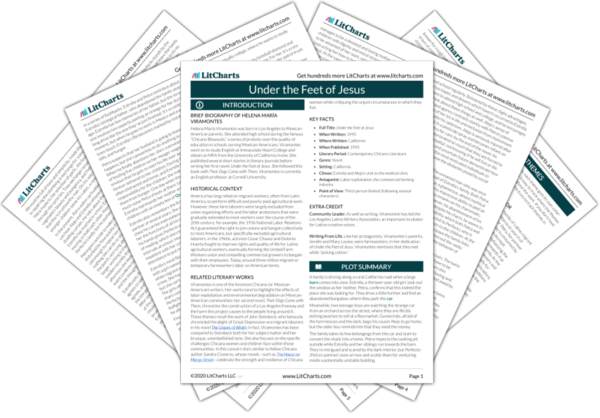Worn down by the pressures of migrant life, the Devridges are indifferent to their terrible living quarters and bad reputation; in comparison to Maxine, Estrella is lucky to belong to parents who uphold their dignity and keep their children clean and well-cared for. Despite this, it’s Estrella who has to “prove” her American nationality by speaking English, while Maxine, who is white, takes this privilege for granted and assumes that others will as well.
